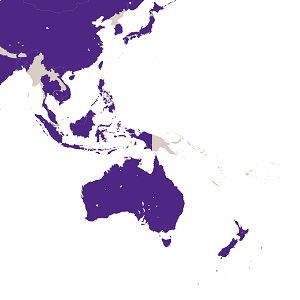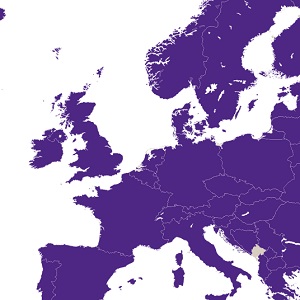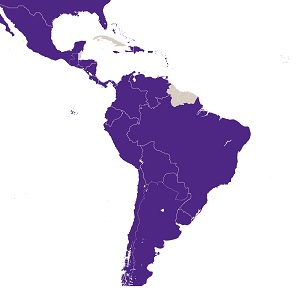About us
Grant Thornton is a global network of 76,000 people in member firms in 156 markets, with one common goal — to help you realise your ambitions. Our member...
-
Why Grant Thornton
Whether you’re growing in one market or many, looking to operate more effectively, managing risk and regulation, or realising stakeholder value, our firms can help.
-
Culture and experience
Grant Thornton’s culture is one of our most valuable assets and has steered us in the right direction for more than 100 years.
-
Global scale and capability
Beyond global scale, we embrace what makes each market unique, local understanding on a global scale.
-
Join our network
In a world that wants more options for high quality services, we differentiate in the market to grow sustainably in today’s rapidly changing environment.
-
Leadership governance and quality
Grant Thornton International Ltd acts as the coordinating entity for member firms in the network with a focus on areas such as strategy, risk, quality monitoring and brand.
IBCD Listing Page
The global leadership team (GLT), chaired by the GTIL CEO is a full-time management group dedicated to leading the network in the successful execution of the...
Locations
-
Africa
24 member firms supporting your business.
-
Americas
31 member firms, covering 44 markets and over 20,000 people.
-
Asia-Pacific
19 member firms with nearly 25,000 people to support you.
-
Europe
53 member firms supporting your business.
-
Middle East
8 member firms supporting your business.
Services
Our progressive thinkers offer services to help create, protect and transform value today, so you have opportunity to thrive tomorrow.
-
Business consulting services
Our business consulting services can help you improve your operational performance and productivity, adding value throughout your growth life cycle.
-
Business process solutions
We can help you identify, understand and manage potential risks to safeguard your business and comply with regulatory requirements.
-
Business risk services
The relationship between a company and its auditor has changed. Organisations must understand and manage risk and seek an appropriate balance between risk and opportunities.
-
Cybersecurity
As organisations become increasingly dependent on digital technology, the opportunities for cyber criminals continue to grow.
-
Forensic services
At Grant Thornton, we have a wealth of knowledge in forensic services and can support you with issues such as dispute resolution, fraud and insurance claims.
-
Mergers and acquisitions
We work with entrepreneurial businesses in the mid-market to help them assess the true commercial potential of their planned acquisition and understand how the purchase might serve their longer-term strategic goals.
-
Recovery and reorganisation
Workable solutions to maximise your value and deliver sustainable recovery.
-
Transactional advisory services
We can support you throughout the transaction process – helping achieve the best possible outcome at the point of the transaction and in the longer term.
-
Valuations
We provide a wide range of services to recovery and reorganisation professionals, companies and their stakeholders.
-
Sustainability advisory
We can assist you with a variety of sustainability advice depending on your needs, ranging from initial strategy development, reporting and compliance support, through to carbon measurement and management.
Related insights:


International business
Scanning the horizon: Mid-market sets sights on global trade growth
The latest International Business Report (IBR) data shows that mid-market businesses have high expectations for global trade.
Our services can strengthen your business and stakeholders' confidence. You'll receive professionally verified results and insights that help you grow.
-
IFRS
At Grant Thornton, our IFRS advisers can help you navigate the complexity of financial reporting from IFRS 1 to IFRS 17 and IAS 1 to IAS 41.
-
Audit quality monitoring
Having a robust process of quality control is one of the most effective ways to guarantee we deliver high-quality services to our clients.
-
Global audit technology
Our global assurance technology platform provides the ability to conduct client acceptance, consultations and all assurance and other attestation engagements.
-
Sustainability assurance
Our sustainability assurance services are based on our global network of specialists, helping you make more efficient decisions for the good of your organisation.
Related insights:


Insights into IFRS 3
Disclosures under IFRS 3: Understanding the requirements
This Insight covers IFRS 3's disclosure requirements.
Our tax services help you gain trust and stay ahead, enabling you to manage your tax transparently and ethically.
-
Corporate and business tax
Our trusted teams can prepare corporate tax files and ruling requests, support you with deferrals, accounting procedures and legitimate tax benefits.
-
Direct international tax
Our teams have in-depth knowledge of the relationship between domestic and international tax laws.
-
Global mobility services
Through our global organisation of member firms, we support both companies and individuals, providing insightful solutions to minimise the tax burden for both parties.
-
Indirect international tax
Using our finely tuned local knowledge, teams from our global organisation of member firms help you understand and comply with often complex and time-consuming regulations.
-
Transfer pricing
The laws surrounding transfer pricing are becoming ever more complex, as tax affairs of multinational companies are facing scrutiny from media, regulators and the public
-
Africa tax desk
A differentiating solution adapted to the context of your investments in Africa.
-
Sustainability tax
Through our sustainability tax advisory services, we can advise how environmental taxes, incentives, and obligations can impact your progress, requiring alignment with governmental and legislative pressures.
Related insights:


Global mobility services - Singapore
Relocating to Singapore – Legal and Tax Considerations
Global mobility introduction to Moving to Singapore as an Expatriate.
Increasing regulation and investor demands for returns and transparency continue to challenge the asset management sector.
We offer an extensive range of services to automotive sector stakeholders from supply chain through to distribution, retail and usership. With a variety of...
Our global banking team are an integrated team of experienced industry professionals with in-depth knowledge of financial services institutions.
Related insights:
-
 Banking Holding banking to account: the real diversity and inclusion pictureWe explore how the banking sector can continue to attract, retain and nurture women to build a more diverse and inclusive future.
Banking Holding banking to account: the real diversity and inclusion pictureWe explore how the banking sector can continue to attract, retain and nurture women to build a more diverse and inclusive future. -
 Sustainability From voluntary to mandatory ESG: How banks can future-proof their operationsAs we move from voluntary ESG initiatives to mandatory legislation, we explore what the banking sector needs to prioritise.
Sustainability From voluntary to mandatory ESG: How banks can future-proof their operationsAs we move from voluntary ESG initiatives to mandatory legislation, we explore what the banking sector needs to prioritise. -
 IFRS IFRS 9 - Audit of Expected Credit LossesGPPC releases The Auditor’s response to the risks of material misstatement posed by estimates of expected credit losses under IFRS 9
IFRS IFRS 9 - Audit of Expected Credit LossesGPPC releases The Auditor’s response to the risks of material misstatement posed by estimates of expected credit losses under IFRS 9 -
 growthiQ Steering your company to long-term successHistory has something important to tell us about the difficulties of steering a business to long-term success – through seismic shifts in technology, consumer demands and product development. With that in mind it’s unsurprising that over half the world’s largest companies in the early 1900s had shut their doors by the late 1990s. Some, however, have endured.
growthiQ Steering your company to long-term successHistory has something important to tell us about the difficulties of steering a business to long-term success – through seismic shifts in technology, consumer demands and product development. With that in mind it’s unsurprising that over half the world’s largest companies in the early 1900s had shut their doors by the late 1990s. Some, however, have endured.
We have considerable expertise in advising the business services sector gained through working with many business support organisations.
Energy markets worldwide are undergoing major changes. Grant Thornton can help you capitalise on opportunities to unlock your potential for growth.
Demographic, organisational and resourcing issues are radically changing the global healthcare industry.
Following world events such as the COVID-19 pandemic, Brexit, and changes to regulation and digitalisation, insurers must be alert to the challenges ahead.
Related insights:
-
 International Financial Reporting Standards Implementation of IFRS 17 ‘Insurance Contracts’The auditor’s response to the risks of material misstatement arising from estimates made in applying IFRS 17 ‘Insurance Contracts’
International Financial Reporting Standards Implementation of IFRS 17 ‘Insurance Contracts’The auditor’s response to the risks of material misstatement arising from estimates made in applying IFRS 17 ‘Insurance Contracts’ -
 IFRS Get ready for IFRS 17After twenty years of development the IASB has published IFRS 17 ‘Insurance Contracts’, find out more.
IFRS Get ready for IFRS 17After twenty years of development the IASB has published IFRS 17 ‘Insurance Contracts’, find out more.
The life sciences industry reaches across biotechnology, pharmaceutical and medical devices, medical technology as well as other industry sub-sectors.
The media industry is in the grip of a technological revolution as the industry responds to the shift to digital and personalisation.
We understand the commitment and scrutiny within this sector and will work with you to meet these challenges.
Related insights:
-
 Global business pulse - industry analysis Mid-market recovery spreads to more industriesThe index results for 13 key industries of the mid-market reveals a very uneven recovery from COVID-19
Global business pulse - industry analysis Mid-market recovery spreads to more industriesThe index results for 13 key industries of the mid-market reveals a very uneven recovery from COVID-19 -
 Global business pulse - industry analysis A very uneven recovery across industriesThe index results for 13 key industries of the mid-market reveals a very uneven recovery from COVID-19
Global business pulse - industry analysis A very uneven recovery across industriesThe index results for 13 key industries of the mid-market reveals a very uneven recovery from COVID-19 -
 Global business pulse - Sector analysis Clear patterns of damage from COVID-19 across the industriesThe index results for 12 key sectors of the mid-market reveal just how much or little the various parts of the economy were impacted by COVID-19.
Global business pulse - Sector analysis Clear patterns of damage from COVID-19 across the industriesThe index results for 12 key sectors of the mid-market reveal just how much or little the various parts of the economy were impacted by COVID-19. -
 Not for profit Mission: possible – putting impact at the heart of charityGlobal charitable continues to decline and charity leaders are increasingly looking at their own unique impact journey.
Not for profit Mission: possible – putting impact at the heart of charityGlobal charitable continues to decline and charity leaders are increasingly looking at their own unique impact journey.
We help businesses navigate today’s changing private equity landscape, ensuring that you can respond to ever-changing regulations and investor demands.
Related insights:
-
 Access to finance Raise finance to invest in changePrepare your business to raise finance to invest in change.
Access to finance Raise finance to invest in changePrepare your business to raise finance to invest in change. -
 Private equity firms Private equity in the mid-market: reshaping strategies for 2021When the global COVID-19 pandemic stormed across the globe in early 2020, the private equity sector was hit hard but deals are coming back to the market.
Private equity firms Private equity in the mid-market: reshaping strategies for 2021When the global COVID-19 pandemic stormed across the globe in early 2020, the private equity sector was hit hard but deals are coming back to the market. -
 Mid-market businesses Getting ready for private equity investmentOur specialists explore how private equity firms are now working with their portfolios and how the mid-market can benefit from investment.
Mid-market businesses Getting ready for private equity investmentOur specialists explore how private equity firms are now working with their portfolios and how the mid-market can benefit from investment. -
 Mid-market businesses Myth-busting private equityNervous about partnering with Private Equity? We explore some of the common myths we come across when speaking to mid-market businesses about PE investment.
Mid-market businesses Myth-busting private equityNervous about partnering with Private Equity? We explore some of the common myths we come across when speaking to mid-market businesses about PE investment.
Across the globe, countries are moving towards leaner, more commercial, locally focused and responsive government and public sectors.
Related insights:
-
 Public sector Helping build the government of tomorrow, todayLearn about the Grant Thornton US public sector team.
Public sector Helping build the government of tomorrow, todayLearn about the Grant Thornton US public sector team. -
 Global business pulse - industry analysis Mid-market recovery spreads to more industriesThe index results for 13 key industries of the mid-market reveals a very uneven recovery from COVID-19
Global business pulse - industry analysis Mid-market recovery spreads to more industriesThe index results for 13 key industries of the mid-market reveals a very uneven recovery from COVID-19 -
 Global business pulse - industry analysis A very uneven recovery across industriesThe index results for 13 key industries of the mid-market reveals a very uneven recovery from COVID-19
Global business pulse - industry analysis A very uneven recovery across industriesThe index results for 13 key industries of the mid-market reveals a very uneven recovery from COVID-19 -
 Global business pulse - Sector analysis Clear patterns of damage from COVID-19 across the industriesThe index results for 12 key sectors of the mid-market reveal just how much or little the various parts of the economy were impacted by COVID-19.
Global business pulse - Sector analysis Clear patterns of damage from COVID-19 across the industriesThe index results for 12 key sectors of the mid-market reveal just how much or little the various parts of the economy were impacted by COVID-19.
At Grant Thornton, we aim to help you successfully read the turns of the industry and navigate this shifting landscape.
Related insights:
-
 Industries European Real Estate PodcastJessica Patel, Tax Partner at Grant Thornton UK speaks with tax partners and directors across the network to share their insights on the real estate market and some of the challenges.
Industries European Real Estate PodcastJessica Patel, Tax Partner at Grant Thornton UK speaks with tax partners and directors across the network to share their insights on the real estate market and some of the challenges. -
 Industries European Real Estate PodcastJessica Patel, Tax Partner at Grant Thornton UK speaks with tax partners and directors across the network to share their insights on the real estate market and some of the challenges.
Industries European Real Estate PodcastJessica Patel, Tax Partner at Grant Thornton UK speaks with tax partners and directors across the network to share their insights on the real estate market and some of the challenges. -
 Global business pulse - industry analysis Mid-market recovery spreads to more industriesThe index results for 13 key industries of the mid-market reveals a very uneven recovery from COVID-19
Global business pulse - industry analysis Mid-market recovery spreads to more industriesThe index results for 13 key industries of the mid-market reveals a very uneven recovery from COVID-19 -
 Global business pulse - industry analysis A very uneven recovery across industriesThe index results for 13 key industries of the mid-market reveals a very uneven recovery from COVID-19
Global business pulse - industry analysis A very uneven recovery across industriesThe index results for 13 key industries of the mid-market reveals a very uneven recovery from COVID-19
The past two years saw the retail industry experience significant disruption, however there will still be opportunities to effectively reposition for future...
Related insights:
-

-
 Global business pulse - industry analysis Mid-market recovery spreads to more industriesThe index results for 13 key industries of the mid-market reveals a very uneven recovery from COVID-19
Global business pulse - industry analysis Mid-market recovery spreads to more industriesThe index results for 13 key industries of the mid-market reveals a very uneven recovery from COVID-19 -
 Global business pulse - industry analysis A very uneven recovery across industriesThe index results for 13 key industries of the mid-market reveals a very uneven recovery from COVID-19
Global business pulse - industry analysis A very uneven recovery across industriesThe index results for 13 key industries of the mid-market reveals a very uneven recovery from COVID-19 -
 Retail How retail is positioning for successCOVID-19 provided some hard lessons for the retail industry. It is time to turn those into sustainable and well executed growth strategies in 2021.
Retail How retail is positioning for successCOVID-19 provided some hard lessons for the retail industry. It is time to turn those into sustainable and well executed growth strategies in 2021.
Rapid change and complexity have always been hallmarks of the technology industry. And it is even more so today.
Related insights:
-
 Technology Mid-market tech companies lead the way on diversity and inclusionWe explore how the mid-market tech sector can continue to build and nurture a culture that’s increasingly more diverse and inclusive for women.
Technology Mid-market tech companies lead the way on diversity and inclusionWe explore how the mid-market tech sector can continue to build and nurture a culture that’s increasingly more diverse and inclusive for women. -
 Tax Resetting global tax rules after the pandemicBusinesses are seeing rising challenges, and finance heads are dealing with a range of new measures. To say the next 12 months are critical for businesses is an understatement.
Tax Resetting global tax rules after the pandemicBusinesses are seeing rising challenges, and finance heads are dealing with a range of new measures. To say the next 12 months are critical for businesses is an understatement. -
 TECHNOLOGY International tax reform: the potential impact on the technology industryIn this article, we’ve summarised key elements of the global tax reform proposals, their potential impact on technology industry and advice from our digital tax specialists on what technology companies can do to prepare.
TECHNOLOGY International tax reform: the potential impact on the technology industryIn this article, we’ve summarised key elements of the global tax reform proposals, their potential impact on technology industry and advice from our digital tax specialists on what technology companies can do to prepare. -
 TMT TMT industry: Fully charged or on standby?Our research revealed five key trends that resonated with Technology, Media and Telecoms (TMT) industry leaders around the world. We asked a panel of our experts from UK, US, India Ireland and Germany, to give us their reaction to the findings.
TMT TMT industry: Fully charged or on standby?Our research revealed five key trends that resonated with Technology, Media and Telecoms (TMT) industry leaders around the world. We asked a panel of our experts from UK, US, India Ireland and Germany, to give us their reaction to the findings.
Despite facing pressure, telecommunication companies are handling the roll-out of new network technologies and an insatiable demand for bandwidth.
Related insights:
-
 TMT TMT industry: Fully charged or on standby?Our research revealed five key trends that resonated with Technology, Media and Telecoms (TMT) industry leaders around the world. We asked a panel of our experts from UK, US, India Ireland and Germany, to give us their reaction to the findings.
TMT TMT industry: Fully charged or on standby?Our research revealed five key trends that resonated with Technology, Media and Telecoms (TMT) industry leaders around the world. We asked a panel of our experts from UK, US, India Ireland and Germany, to give us their reaction to the findings. -
 Cybersecurity One size fits nothingTechnology companies must adopt a new approach to digital risk: those that successfully develop a reputation for digital trust by demonstrating an unwavering commitment to cyber security and data privacy will be able to carve out a competitive advantage.
Cybersecurity One size fits nothingTechnology companies must adopt a new approach to digital risk: those that successfully develop a reputation for digital trust by demonstrating an unwavering commitment to cyber security and data privacy will be able to carve out a competitive advantage. -
 Technology, media & telecommunications Why it’s time for a 5G reality checkFigures suggest the mobile sector is maturing. While data usage continues to soar, mobile revenues are expected to flatten out over the next few years.
Technology, media & telecommunications Why it’s time for a 5G reality checkFigures suggest the mobile sector is maturing. While data usage continues to soar, mobile revenues are expected to flatten out over the next few years. -
 GrowthiQ Is blockchain right for your business?Blockchain has been seized upon by the financial services sector, where it is playing a crucial role in tracking and authenticating transactions.
GrowthiQ Is blockchain right for your business?Blockchain has been seized upon by the financial services sector, where it is playing a crucial role in tracking and authenticating transactions.
The COVID-19 pandemic caused unprecedented levels of disruption to the global travel industry. As this evolves, it is unclear what recovery looks like.
Related insights:
-
 International business Mid-market businesses lifted by rising tide of optimismOptimism among global mid-market business leaders rose to 67% in the first half of this year and they are markedly more optimistic about their prospects with global optimism having increased by 8%.
International business Mid-market businesses lifted by rising tide of optimismOptimism among global mid-market business leaders rose to 67% in the first half of this year and they are markedly more optimistic about their prospects with global optimism having increased by 8%. -
 Global business pulse - industry analysis Mid-market recovery spreads to more industriesThe index results for 13 key industries of the mid-market reveals a very uneven recovery from COVID-19
Global business pulse - industry analysis Mid-market recovery spreads to more industriesThe index results for 13 key industries of the mid-market reveals a very uneven recovery from COVID-19 -
 Hotels COVID-19: Checking in with the hotel industry one year onCOVID-19 provided some hard lessons for the hotel sector. It is time to turn those into sustainable and well executed growth strategies.
Hotels COVID-19: Checking in with the hotel industry one year onCOVID-19 provided some hard lessons for the hotel sector. It is time to turn those into sustainable and well executed growth strategies. -
 Global business pulse - industry analysis A very uneven recovery across industriesThe index results for 13 key industries of the mid-market reveals a very uneven recovery from COVID-19
Global business pulse - industry analysis A very uneven recovery across industriesThe index results for 13 key industries of the mid-market reveals a very uneven recovery from COVID-19
Insights
- By topic
Featured insights and popular topics from our trending insights.
-
Women in Business 2025
For 21 years, the Women in Business report has tracked the proportion of women in senior roles in the mid-market. Progress has been made but with gender equity over 25 years away, that isn’t soon enough.
-
The journey to a sustainable future
The world needs a sustainable mid-market. It’s vital to economies, societies and the planet. Businesses, governments, and other stakeholders must work collaboratively to make sure this vital part of the world economy succeeds.
-
Navigating tariffs
Traditional global export markets continue to shift as tariffs are introduced, presenting a challenge for mid-market firms
-
International business: Mid-market growth and expansion
The mid-market looks to international business opportunities for growth.
With seismic shifts in the global landscape, leaders must take deliberate action to propel their businesses into a more inclusive future, foster innovation,...
-
Women in Business 2025: Impacting the missed generation
The 2025 Women in Business report explores the external pressures and internal drivers that impact gender diversity in senior roles in the mid-market.
-
Women in tech: A pathway to gender balance in top tech roles
Grant Thornton’s 2024 Women in Business data suggests we are far from achieving parity within the mid-market technology sector.
-
Women in leadership: a pathway to better performance
What makes the benefits of gender parity compelling is the impact it can have on commercial performance.
-
Women in Business 2024
2024 marks the 20th year of Women in business where we monitor and measure the proportion of women occupying senior management roles around the world.
-
Women in business: Regional picture
We saw an increase in the percentage of senior management roles held by women, on a global level, but there are some significant regional and country variations.
-
Pathways to Parity: Leading the way
To push towards parity of senior management roles held by women, who leads within an organisation is vital.
-
Generating real change with a long-term focus
The most successful strategy to achieve parity of women in senior management is one which stands alone, independent of an ESG strategy.
-
People at the heart of great business
Businesses have started to put guidelines and incentives in place, focused on driving employees back to the office.
Expert insights empowering business leaders to meet their ESG goals.
-
The journey to a sustainable future
The world needs a sustainable mid-market. It’s vital to economies, societies and the planet. Businesses, governments, and other stakeholders must work collaboratively to make sure this vital part of the world economy succeeds.
-
Ten considerations for preparing TCFD climate-related financial disclosures
Insights for organisations preparing to implement the International Sustainability Standards Board (ISSB)’s Standards.
-
COP28
COP28 was the first time there has been a global stocktake on progress against the Paris Agreement.
-
Transition Plan Taskforce publishes its final disclosure framework
As organisations in the private sector make commitments and plans to reach net zero, there's a growing need for stakeholders to be able to assess the credibility of their transition plans.
-
Promoting ESG excellence through tax
ESG considerations have never been more important for an organisation’s long-term success, but how can tax be used to add value to an ESG agenda?
Expert insights to enable you to navigate the risks and harness the growth opportunities of going global.
-
International business: Mid-market growth and expansion
The mid-market looks to international business opportunities for growth.
-
Top five constraints to international business in the mid-market
Top five major constraints that are testing the mid-market’s ability to grow their businesses internationally.
-
Brand and international marketing – breaking global barriers
Brand has been identified as a key driver of mid-market success when looking to grow and develop international business.
-
The key to international business: Investing in people
How can recruitment and retention help grow international business?
-
Building resilience in international business
Evolving supply chains and trade patterns amid ongoing global uncertainty.
Navigate the complexity of the IASB Standards so you can focus your time and effort on running your business.
-
Example Financial Statements
The 2025 Interim Financial Statements provide general guidance on preparing interim financial statements in accordance with IFRS Accounting Standards.
-
IFRS 8
Our ‘Insights into IFRS 8’ series considers some key implementation issues and includes interpretational guidance in certain problematic areas.
-
IFRS 16
Are you ready for IFRS 16? This series of insights will help you prepare.
-
IAS 36
Insights into IAS 36 provides assistance for preparers of financial statements and help where confusion has been seen in practice.
-
IFRS 17
Explaining the key features of the Standard and providing insights into its application and impact.
Across the globe, companies’ tax affairs are facing increasing scrutiny from regulators, communities and clients. Read our latest insights ranging from BEPS to...
-
Pillar 2
Key updates and support for the global implementation of Pillar 2.
-
Global expatriate tax guide
Growing businesses that send their greatest assets – their people – overseas to work can face certain tax burdens, our global guide highlights the common tax rates and issues.
-
International indirect tax guide
Navigating the global VAT, GST and sales tax landscape.
-
Global transfer pricing guide
Helping you easily find everything you need to know about the rules and regulations regarding transfer pricing and Country by Country reporting for every country you do business with.


 The mid-market has the growth genes of smaller businesses, and many of the resources of larger companies which will very prove useful in this crisis. Scott Farber, network capabilities team director at Grant Thornton International Ltd, also argues that there is a real sense of family in family-owned mid-market companies and a connection between employees and owners/leaders which means that employees will go the extra mile to support the company during this difficult time.
The mid-market has the growth genes of smaller businesses, and many of the resources of larger companies which will very prove useful in this crisis. Scott Farber, network capabilities team director at Grant Thornton International Ltd, also argues that there is a real sense of family in family-owned mid-market companies and a connection between employees and owners/leaders which means that employees will go the extra mile to support the company during this difficult time.

